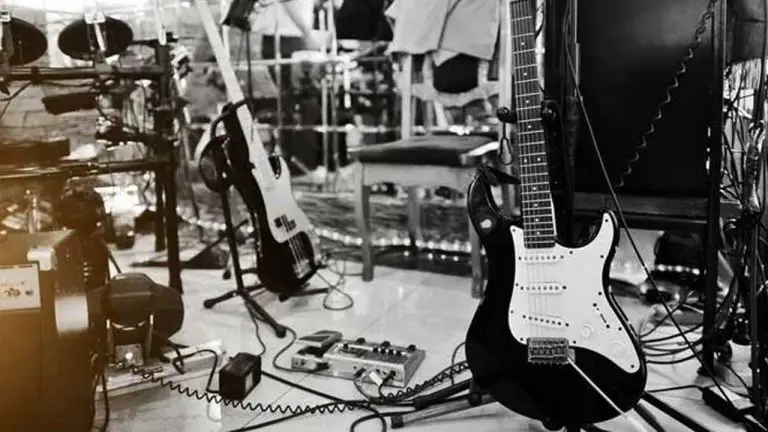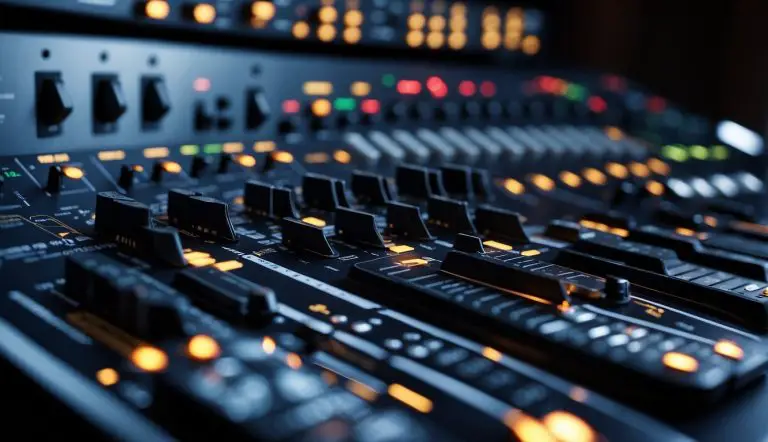Can a Good Amp Make a Cheap Guitar Sound Good? Exploring Affordable Gear Combos
The quest for great guitar tone often leads to a pivotal question: Can a good amp elevate the sound of a cheap guitar? Many believe that the cornerstone of a memorable guitar sound is the amp, seeing as it has the power to shape and amplify the nuances of the guitar’s tone.
As a guitarist, I’ve explored this notion through experience and conversation with others in the community. Anecdotes from seasoned musicians suggest that investing in a high-quality amplifier can indeed breathe new life into a budget-friendly guitar, unlocking its potential for a fuller and richer sound.
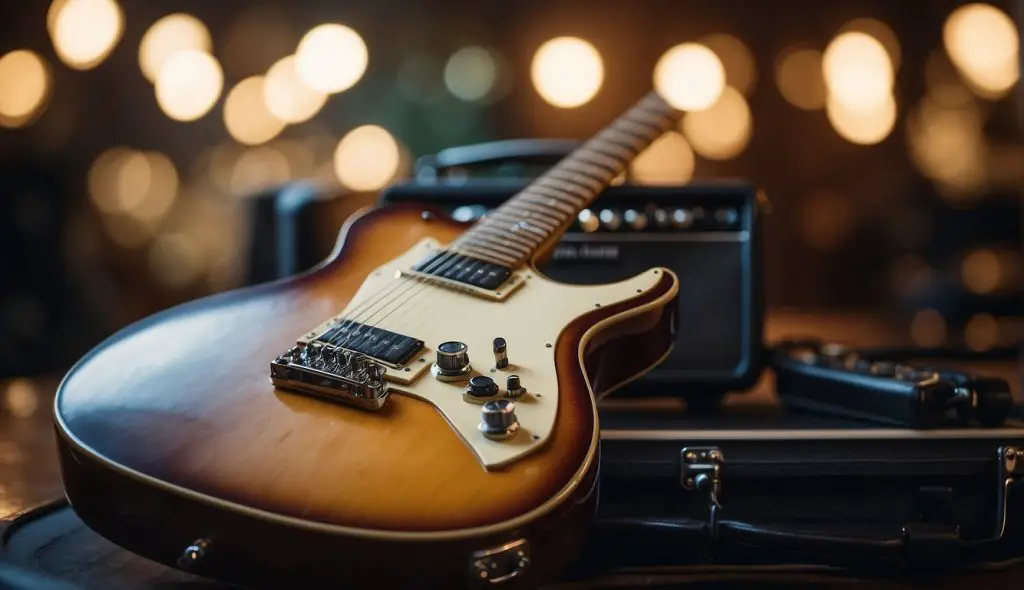
While it’s true that the craftsmanship of a guitar is a critical factor in its overall sound quality, the amp serves as the voice of the guitar, projecting its character to the audience.
I’ve noticed that even less expensive guitars can produce surprisingly good tones when paired with a good amp.
The variety of amp features, such as equalization controls, effects loops, and varying power levels, can significantly influence how the guitar sounds.
This suggests that the role of the amplifier can’t be underestimated when striving for a great tone, regardless of the guitar’s price tag.
Key Points
- A good amp can substantially improve the sound of a cheap guitar.
- Amplifiers play a crucial role in shaping and projecting the guitar’s tone.
- The right amplifier features can maximize the potential of any guitar.
Table of Contents
The Importance of a Quality Amplifier
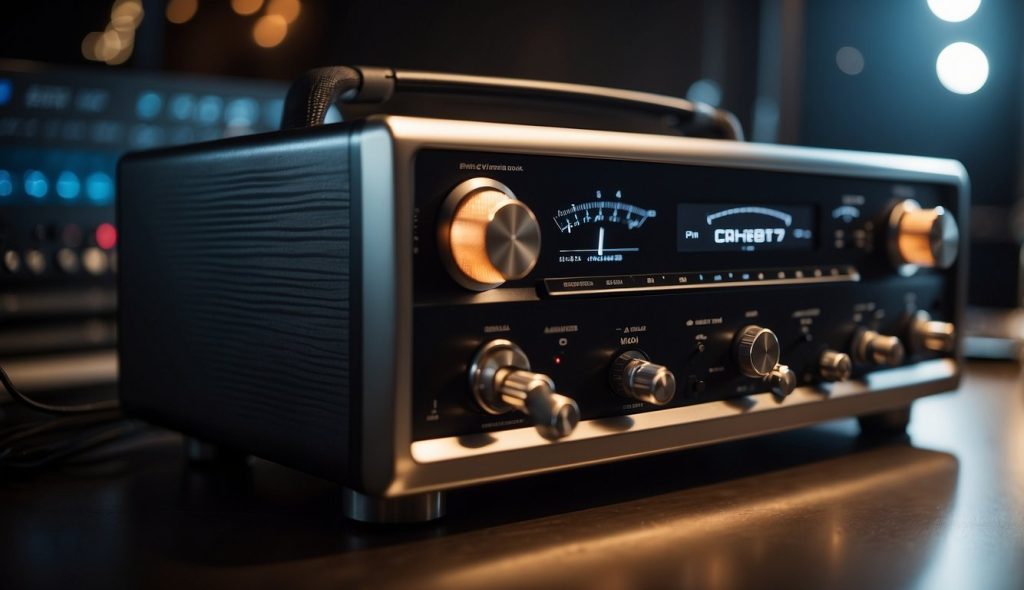
When I approach guitar tone, my amp is as crucial as my guitar itself. The right amplifier brings out the best in even an inexpensive guitar, shaping the sound quality, dynamics, and overall character.
Essential Amp Features
The features of an amp are pivotal in defining sound.
Reverb, for example, is essential for adding depth.
A good amp should offer a three-band EQ (bass, midrange, treble) to fine-tune the sound.
Additionally, gain control is vital for achieving the desired level of distortion or cleanliness.
Tube vs Solid-State Amps
The debate between tube amps and solid-state amps largely hinges on tone and response.
Tube amps are renowned for their warm, organic sound and dynamic responsiveness, which can complement a lower-priced guitar.
On the other hand, solid-state amps offer consistency and can also produce excellent sound quality, but with less nuance.
Setting the Stage with EQ and Gain
Mastering amp settings is key to great tone.
By adjusting the EQ, I tailor the frequencies to suit my guitar’s character, ensuring it cuts through the mix or sits well in a band setting.
The gain knob allows me to control the level of distortion; even a slight tweak can impact the harmonic content of my sound significantly.
Getting the Best Out of Your Guitar
To make a cheap guitar sound its best, I focus on the pickups, the playability, and how I can utilize pedals to enhance the overall sound.
Pickup Conundrums: Single Coil and Humbucker
Single Coils: In my experience with inexpensive guitars, single-coil pickups often produce a bright and crisp sound. They can, however, introduce some unwanted hum, which can be minimized by ensuring the wiring is properly shielded and grounded.
Humbuckers: When I’ve played cheap guitars that feature humbuckers, I’ve noticed they often provide a thicker, warmer sound with less noise. They’re my go-to for genres like rock and metal where I want that fuller sound. Plus, if I’m aiming for better sustain and less interference, humbuckers installed in a cheap guitar can make a significant difference.
Effects on Playability: Strings and Action
- Strings: The choice of strings greatly influences playability and tone. On my budget guitars, I pay attention to the gauge of the strings, opting for lighter ones to ease playability without compromising on tone.
- Action: The guitar’s action, or the height of the strings above the fretboard, is crucial for comfort and playability. I always check the neck’s straightness on my cheaper guitars and adjust the truss rod accordingly to achieve a low action without fret buzz.
Maximizing Guitar Potentials with Pedals
Overdrive/Distortion Pedals: Pedals can drastically improve the sound of a cheap guitar. I like to use overdrive pedals to add warmth and character, or distortion pedals for more aggressive styles.
Modulation/Time-based Pedals: Chorus, delay, and reverb pedals can mask some deficiencies of a cheaper electric guitar by adding depth and space to the sound. Applying these effects subtly can make the guitar sound much more expensive than it is.
Summing Up the Cheap Guitar Experience
I often hear concerns from fellow guitarists about whether investing in a good amp can really make a difference for a cheap guitar. Let’s explore how a budget-friendly amplifier can enhance the sound of an economical electric guitar, and what modifications and accessories can further improve this setup.
Affordable Amp Options
When I’m on the lookout for an amp that won’t break the bank, I always consider the Fender Mustang LT25. It’s a versatile and affordable guitar amp that comes well under the $500 mark, providing an array of amp models and effects.
Here’s a quick list of budget guitar amps that I believe offer great value:
- Fender Mustang LT25 – Known for its diverse sound presets and easy-to-use interface.
- Peavey Vypyr VIP 1 – Includes acoustic guitar simulation and multiple instrument modes.
- Blackstar ID 10 V2 – Features patented Super Wide Stereo sound and a built-in tuner.
I make sure to pick amps with a good range of built-in effects, since this can save on the cost of pedals while extending my tonal palette.
Modifying Budget Guitars for Enhanced Sound
My budget guitar could sound way better than I used to think; simple modifications can have a substantial impact.
One of the first things I look at is the frets—if they are uneven or sticking out, getting them leveled and polished can improve playability and intonation.
Adjusting the saddle height can also affect the guitar’s tone and sustain drastically.
A properly set saddle will reduce fret buzz and ensure the strings resonate more freely.
I sometimes swap out the factory pickups for higher quality ones, as this directly influences the guitar’s sound character.
The Role of Accessories
Finally, accessories can play a surprising role in the sound produced by my guitar. Here’s what I pay attention to:
- Cables: I pick high-quality cables with robust shielding to prevent signal loss and reduce noise.
- Corrosion prevention: I use coated strings and often clean my guitar’s input jack and cables’ plugs to minimize the natural corrosion that can affect tone clarity.
Conclusion: Making Your Mark with Quality Sound
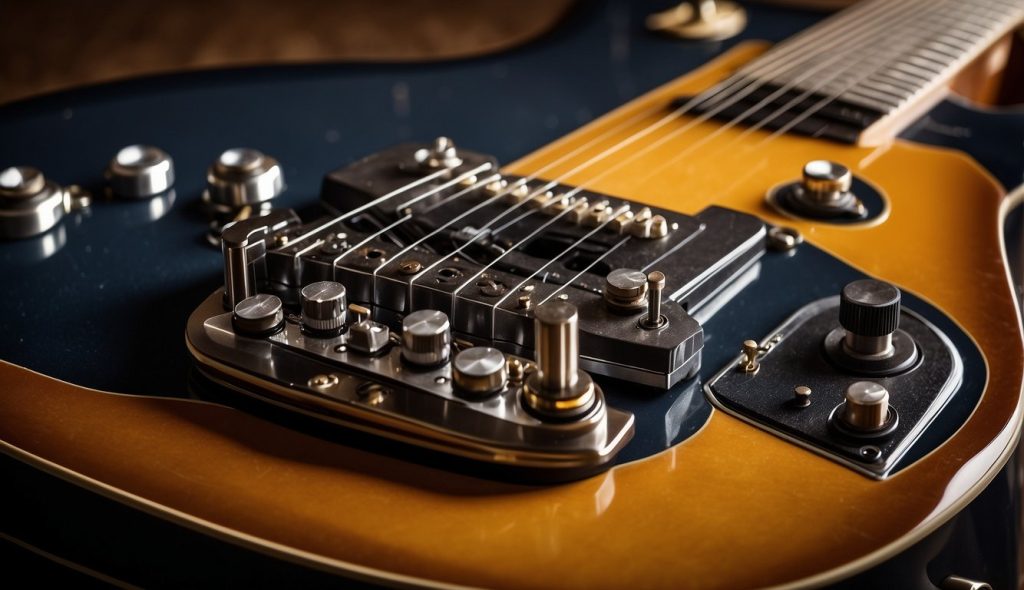
When I approach the world of guitar playing, I realize that sound quality isn’t just a matter of owning expensive gear. As a musician, I’ve seen firsthand how a good amplifier can elevate the tones of an affordable instrument.
However, it’s more than just pairing a cheap guitar with a great amp; it’s about understanding how quality materials and quality control contribute to the overall sound.
My experience has shown me that professional sound is achievable on a budget.
Consider the guitar’s construction and the amplifier’s ability to articulate nuances. The interplay between your playing style and your gear’s capabilities can cause your music to flourish in surprising ways.
When you’re aiming to captivate listeners, remember these points:
- Playing Style: It’s pivotal. Your technique should complement your gear’s character.
- Affordability vs. Quality: A well-crafted amp can bring out the best in lower-cost guitars.
- Understanding Gear: Familiarize yourself with the features of your instruments and amp. Leverage them.
Frequently Asked Questions
In this section, I’ll address some of the common questions regarding how a good amp can influence the sound quality of a cheap guitar.
How can I improve the sound quality of my budget acoustic guitar?
To improve the sound of a budget acoustic guitar, consider upgrading strings and ensuring proper setup for optimal playability.
Higher-quality strings and accurate intonation can make a noticeable difference.
Is it true that affordable acoustic guitars inherently lack great sound?
Not necessarily. While costly guitars often use superior materials and craftsmanship, many affordable models can produce impressive sounds, especially when paired with a good setup and played through a quality amp.
What impact does a high-quality amplifier have on a guitar’s tone?
A high-quality amplifier can greatly enhance a guitar’s tone by providing better clarity, resonance, and dynamic range. It shapes the sound and can add richness to even a budget guitar’s output.
Is it possible to enhance a low-cost guitar’s sound with the right gear?
Absolutely. With the right gear, such as a quality amp and effects pedals, you can significantly improve the tone and overall sound quality of a low-cost guitar.
Do you have to invest in a premium guitar to achieve professional sound quality?
No, you don’t necessarily need a premium guitar for professional sound quality. With the right amplifier and proper guitar setup, even less expensive guitars can produce satisfying tones for both practice and performance.
How does an amplifier affect the overall tone of a guitar?
An amplifier plays a crucial role in defining and projecting the guitar’s tone. It processes the guitar’s signal. It can add warmth, brightness, and depth, greatly affecting the guitar’s audible character.


